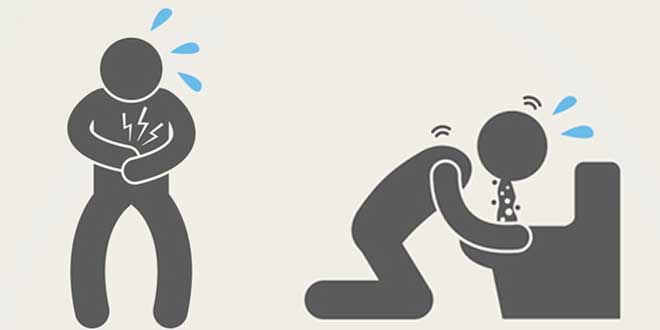
Food Poisoning: Things You Should Know
Food poisoning is very common these days. Though it isn’t a fatal condition, it might get very serious and take a toll on your health. Generally this condition is caused by eating something that is loaded with germs and bacteria.
These germs and bacteria have an adverse affect on our body, affecting our digestive system. When foreign bacteria invade our digestive system, our body retaliates and often reacts by vomiting. This is also the first symptom that tells you that you might have food poisoning.
Symptoms
The general symptoms of food poison are diarrhea, vomiting, dizziness, excessive salivation in mouth and weakness. These symptoms may range from mild to severe depending on the type of bacteria that have cause food poisoning. The symptoms arise usually after an hour or in some came cases after a few days.
Causes
It is important to know what has caused the food poisoning after diagnosis. The most common bacteria which cause food poisoning are salmonella, listeria, campylobacter and E. coli.
A person who is ill might transfer his germs to the food while preparing food or by drinking contaminated water or eating foul poultry and dairy products or raw shell fish might also cause food poisoning. Canned food which is not preserved properly can often go stale and be a major cause of food poisoning.
The Risks and Ways to Reduce them
Food poisoning is usually considered not fatal but in very severe cases it might pose life threatening danger if not medicated properly.
Prevention is better than cure! It is always better to be careful so as to shut out any chances of getting food poisoning. Cleanliness is a must have in your culinary surroundings: make sure that all the utensils and crockery you use are clean.
Make sure to wash your hands before cooking and eating. Cook the meat thoroughly; raw poultry products might cause food poisoning. Always buy canned food that you trust, and never forget the expiration dates before using it. Here is a list of things you can do to make sure you stay healthy:
- Throw away all the stale food. Don’t even think about eating it.
- Make sure that the milk you buy is pasteurized.
- Try not to eat street food on hot summer days.
- Always wash fruits and vegetables before using them.
- Get rid of even the slightest form of contamination away from your eatables.
If you are already suffering from diarrhea, then avoid making food for others too. Make sure that you always wash your hands properly after using toilet or handling your pets. Cleanliness would prevent any bacteria which would diminish the chances of getting food poisoning to a large extent.
Food poisoning is often treatable at home; however severe cases often require proper medical attention. If the condition is not severe use some of the tips enumerated here. When suffering from this consition the digestive system does not work well hence it is important to give maximum rest to the exhausting digestive system. Avoid eating any solid food that is difficult to digest.
Food poisoning often leaves the affected person fatigued, tired and dehydrated. Make sure that you keep yourself hydrated and drink as much water as possible. Avoid taking in liquids such as tea and coffee. However, take in as much herbal tea as possible. It would keep the stomach calm. If the this condition is not severe, avoid taking in any medication. If the food poisoning is severe then seek medical attention as quickly as possible.

